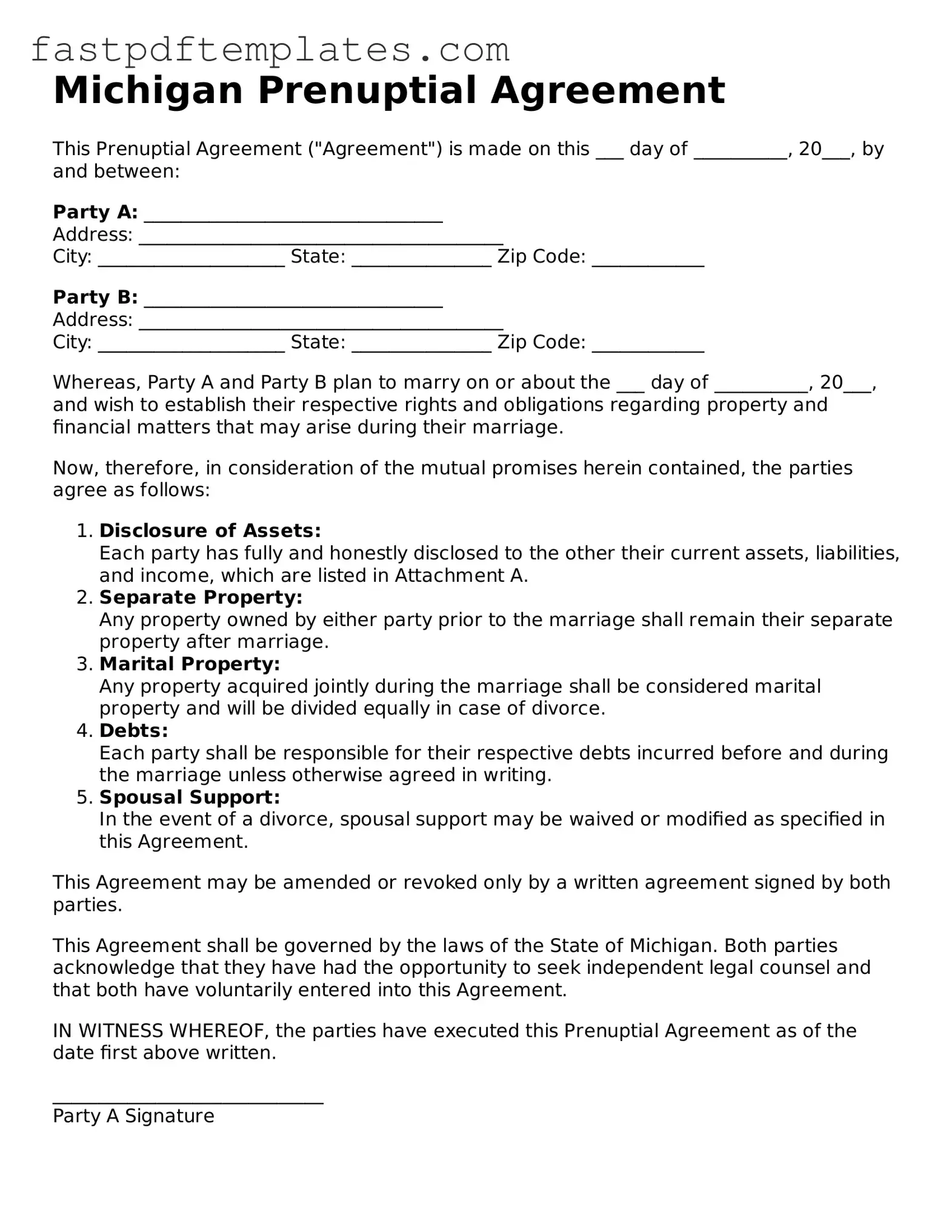Attorney-Approved Michigan Prenuptial Agreement Document
A Michigan Prenuptial Agreement form is a legal document that couples can use to outline their financial rights and responsibilities before marriage. This agreement serves to protect individual assets and clarify expectations, making it an essential tool for many. Understanding its importance can help couples navigate their financial future with confidence.
Access Document

Attorney-Approved Michigan Prenuptial Agreement Document
Access Document
Your form still needs completion
Complete your Prenuptial Agreement online and download the final PDF.
Access Document
or
Click for PDF Form
